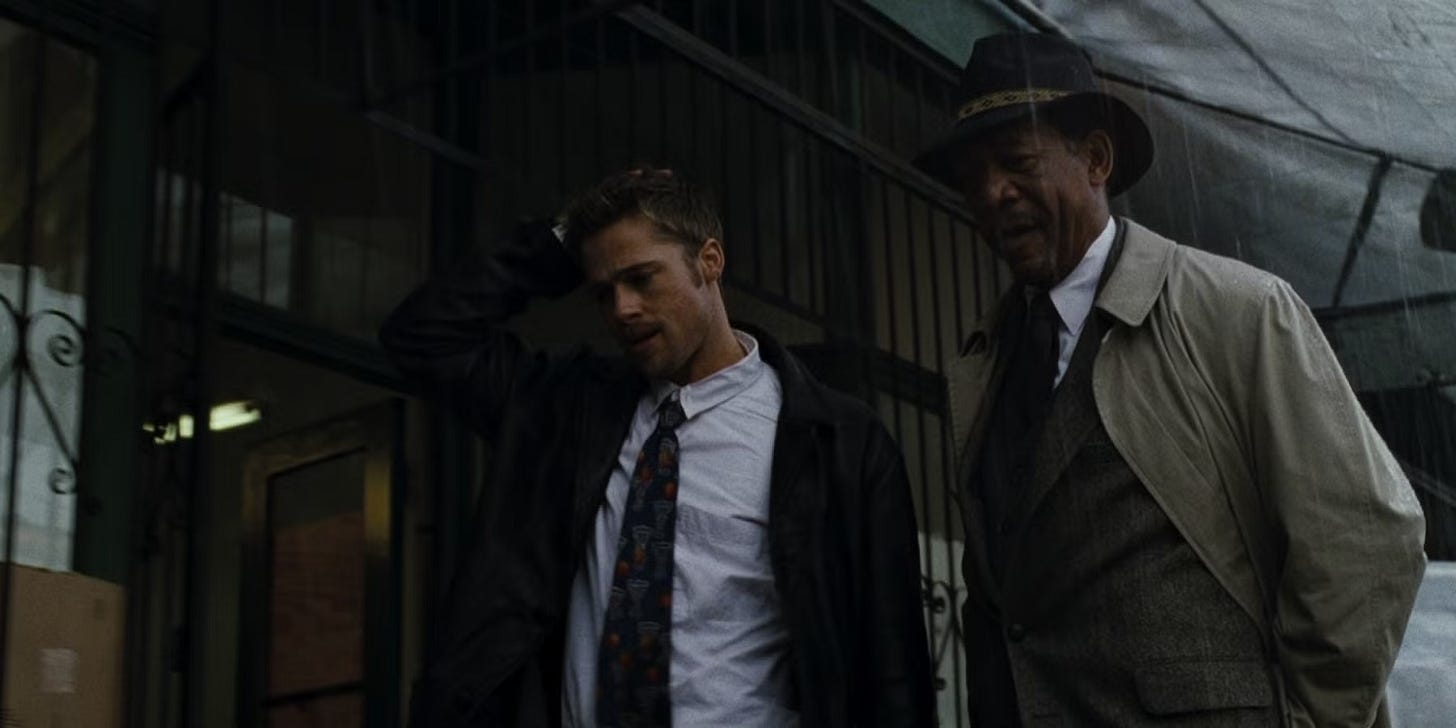Building Your Fictional Characters' Core: Lessons from 'Se7en' and More
Giving your characters a little inner tension can make them far more compelling.
Earlier this week, I sat down with James L’Etoile on his excellent Authors on the Air podcast to talk (inevitably) crime fiction, “Where the Bones Lie,” the definition of noir, and much more. You can listen to the full clip via the Soundcloud embed below, but it’s also available on all the major podcasting platforms:
Keep reading with a 7-day free trial
Subscribe to Ink-Stained Wretch to keep reading this post and get 7 days of free access to the full post archives.


